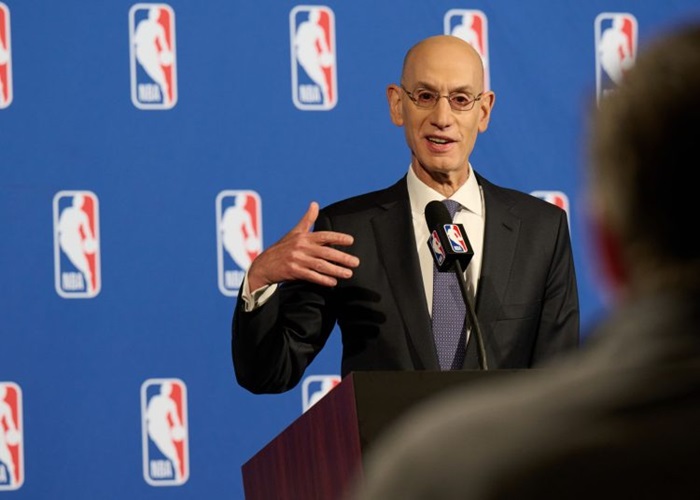The completion of formal negotiations with the board of governors on a new deal keeps Silver — nearing his 10th anniversary as commissioner — on course to pursue the NBA’s next set of major objectives: a new media rights deal and league expansion.
Largely different than his predecessor David Stern, Silver has built a reputation of pursuing more consensus and partnership with ownership, management and players. He has been able to maintain respect — and even popularity — among those constituencies despite difficult decisions and negotiations.
Silver, 61, has driven some dramatic initiatives, including the introduction of the play-in and in-season tournaments, player participation legislation, draft lottery reform that has disincentivized teams from racing to the bottom for top draft picks and steadily rising franchise financial valuations.

The implementation of the league’s freedom of movement emphasis in 2019-20 has increasingly gassed up the league’s scoring, including a 2023-24 campaign that so far includes four of the top 10 offensive teams in NBA history.

Silver has shown an ability to navigate crises — most notably by suspending the NBA season following Rudy Gobert’s positive test for COVID-19 in 2020 and leading the way for an American sport and societal reaction to the opening weeks of the pandemic. Ultimately, Silver devised the Orlando bubble to restart and complete that 2020 season, salvaging television revenue and player salaries.

Silver also oversaw bans, suspensions and the eventual sales of teams by two problematic NBA owners — the LA Clippers’ Donald Sterling and the Phoenix Suns’ Robert Sarver.
Silver spent eight years as the league’s deputy commissioner before succeeding Stern in 2014 and was a consensus choice to replace him when Stern announced his retirement date in 2012.

